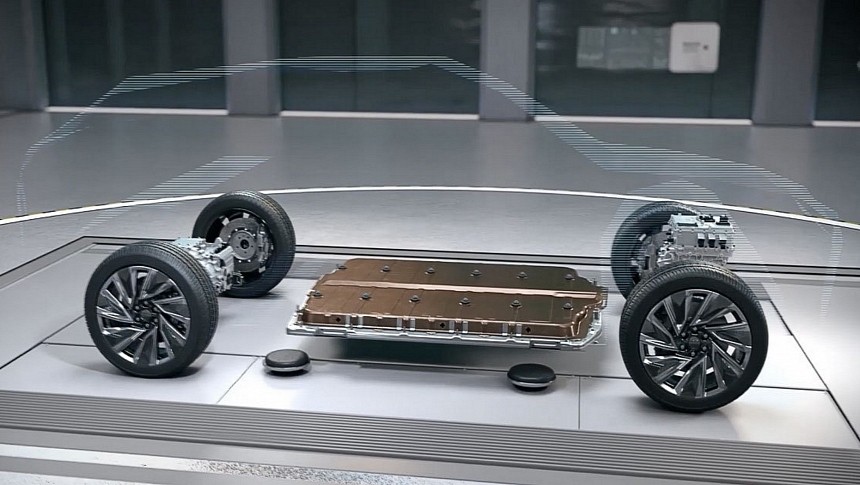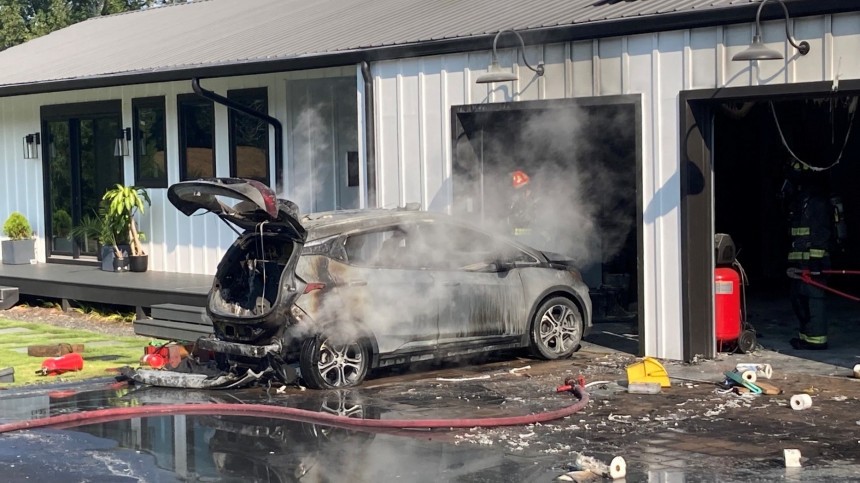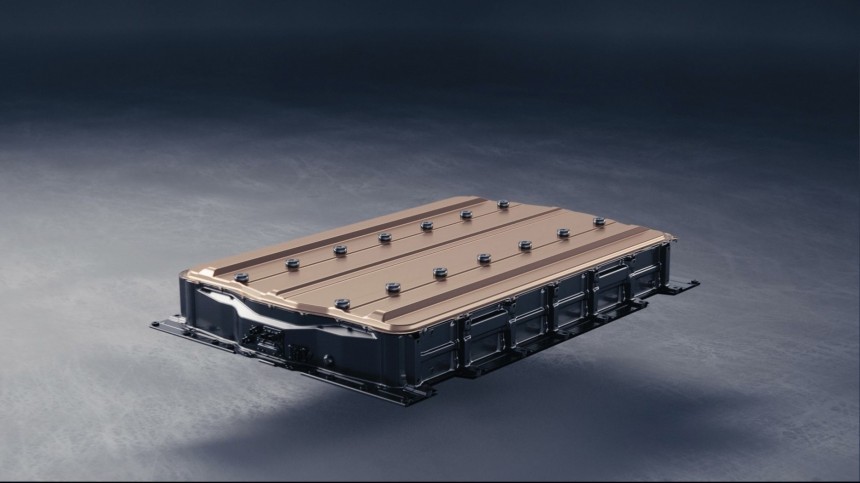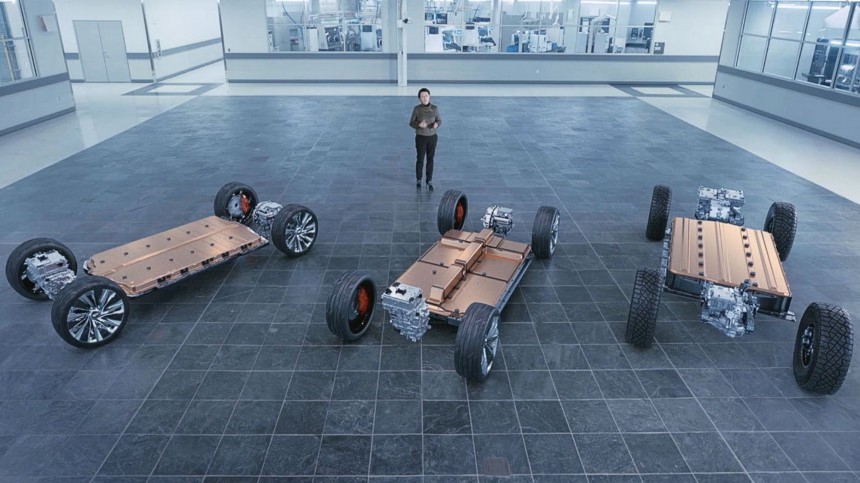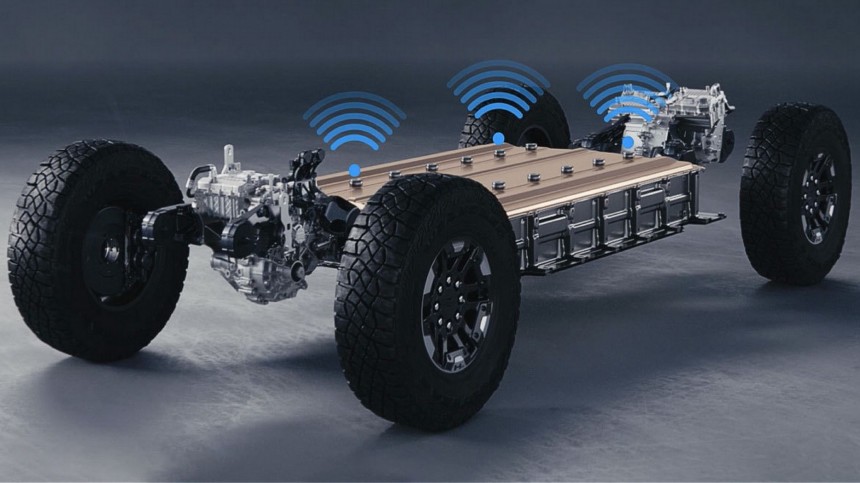If it were not for the EV1, we could say that General Motors arrived late to the electric car party. When it decided it wanted a piece of that market, things went very wrong with the Bolt EV and its massive battery pack recall. The automaker's purchase of an Israeli startup shows GM does not want to repeat that experience. In fact, it reveals how concerned automakers are about battery packs – and how little they can do about them.
That's only natural. A battery pack represents most of the production cost for a battery electric vehicle (BEV) and becomes a tremendous liability if anything goes wrong. Either car companies make their own cells, or they trust that suppliers will sell them impeccable ones. GM chose the second option and was surprised when LG Energy Solution (LGES) delivered defective components that were prone to thermal runaway episodes – fires, if you prefer a more straightforward communication. That is where ALGOLiON can help.
In GM's words, the Israeli startup "has developed sophisticated software that uses data streams from EV battery management systems to help identify anomalies in cell performance to ensure proper vehicle health management." In other words, it provides "early detection of battery hazards including thermal runaway propagation events."
The software ALGOLiON developed "uses sophisticated algorithms to identify minuscule changes that could impact battery health weeks earlier than other methods in use today." It does all that "without additional hardware or sensors," which lowers the costs associated to any detection tool. General Motors is also happy that the ALGOLiON software does not interfere with the battery pack's regular operation.
That's all pretty helpful until you think about further consequences. Let's suppose the ALGOLiON software behaves as expected and detects anything that can lead a battery pack to self-immolate some weeks from that point. What will GM do about that if the component is still under warranty? What should the owner do if the warranty is over? There is no answer to these questions at this point.
If you think it through, you'll see the software that ALGOLiON now offers is the first solution General Motors proposed to fix the Chevy Bolt EV when the first blazes started to emerge. All the solution did was to recommend that people park far from anything that could burn along with the vehicle if anything was wrong. In some cases, it was not capable of doing even that: blazes occurred without any warning.
The monitoring software ALGOLiON developed and will keep working on under GM ownership is just a tool for the automaker to follow the health of its electric vehicles. If it works as planned, it will give the automaker a better idea of how the battery packs are holding out. If they present any issues, just like they did with the Bolt EV, General Motors may have more time to negotiate with its supplier (still LGES, for the Ultium cells) to get them replaced without the same doubts it apparently had with the Bolt fires. This is the only aspect that can make customers' lives a little better, but they still have plenty of concerns related to their BEVs' most expensive component.
Imagine a scenario in which the battery pack dies. How much will it cost to replace it in GM electric cars? If we are talking about the GMC Hummer EV, it would be fair to imagine the 212.7-kWh high-voltage accumulator will cost twice as much as Tesla's 100-kWh battery pack, currently sold for $20,000. If the Bolt EV is a valid parameter, General Motors may be able to replace only the defective modules, not the whole battery pack. However, it is not clear how the automaker conceived the components of its future BEVs.
If GM chose to follow cell-to-pack (CTP) or even cell-to-body (CTB) construction strategies, as BYD did, the only replacement option is the entire battery pack. By eliminating modules and other structures in a battery pack, these building methods increase the energy density but also seem to reduce the repairability of these elements. If they present problems, the only solution is to replace them.
Right now, BEV advocates are only happy to see so many options available from several automakers. In eight years or more, they will face used electric cars out of warranty with massive repair bills because no one is talking about battery pack maintenance. To be honest, the only company to mention that was AEHRA – and it is yet to produce any vehicles, which makes it just a promise for the time being. General Motors' purchase of ALGOLiON shows automakers are worried about not being caught by surprise by issues such as the one the Bolt EV presented. Unfortunately, they are not as concerned with what used car buyers will have to figure out when BEVs are the leading option for them.
In GM's words, the Israeli startup "has developed sophisticated software that uses data streams from EV battery management systems to help identify anomalies in cell performance to ensure proper vehicle health management." In other words, it provides "early detection of battery hazards including thermal runaway propagation events."
That's all pretty helpful until you think about further consequences. Let's suppose the ALGOLiON software behaves as expected and detects anything that can lead a battery pack to self-immolate some weeks from that point. What will GM do about that if the component is still under warranty? What should the owner do if the warranty is over? There is no answer to these questions at this point.
The monitoring software ALGOLiON developed and will keep working on under GM ownership is just a tool for the automaker to follow the health of its electric vehicles. If it works as planned, it will give the automaker a better idea of how the battery packs are holding out. If they present any issues, just like they did with the Bolt EV, General Motors may have more time to negotiate with its supplier (still LGES, for the Ultium cells) to get them replaced without the same doubts it apparently had with the Bolt fires. This is the only aspect that can make customers' lives a little better, but they still have plenty of concerns related to their BEVs' most expensive component.
If GM chose to follow cell-to-pack (CTP) or even cell-to-body (CTB) construction strategies, as BYD did, the only replacement option is the entire battery pack. By eliminating modules and other structures in a battery pack, these building methods increase the energy density but also seem to reduce the repairability of these elements. If they present problems, the only solution is to replace them.
